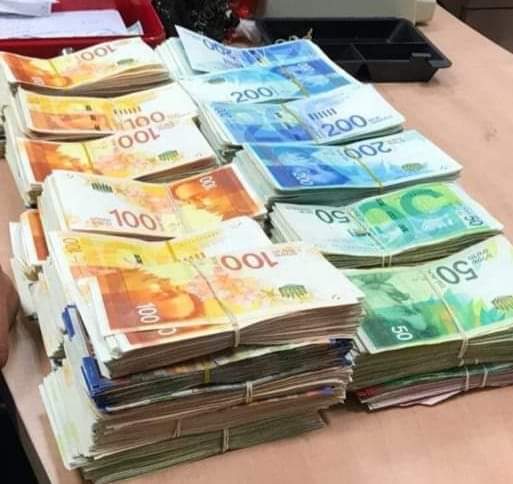The recent tweets by US President Donald Trump and the threat to impose new customs duties on imports from China have dominated the headlines in recent weeks, but this is nothing but camouflage for the real war. The transatlantic battlefield has become a war of currencies, with the trade wars taking a backseat.
Following Trump's announcement last Thursday of new 10% customs tariffs on $300 billion in imports of goods from China, at the beginning of this week's foreign currency trading, the Chinese central bank announced an immediate devaluation of the yuan against the dollar above the psychological barrier of 7 yuan/$, the highest exchange rate in 13 years. Unofficial contracts for the currency in Hong Kong show an even steeper devaluation. The devaluation obviously makes things easier for Chinese exporters by partly offsetting the increase in prices caused by the new customs duties.
This devaluation and the concern about its results caused sharp falls in Asian financial markets, followed by the rest of the world because of concern that the currency struggles will damage the economies in the region. Hardest hit in the trade war are the exporters in the emerging markets, who are greatly dependent on trade in general and China in particular. Given the weakness shown by China's economy, these countries fear that the economic slowdown will worsen, and are utilizing the only immediate measure available to them - an interest rate cut.
Since late June, we have seen a series of interest rate cuts all over the world, which have caused sharp fluctuations in the currency markets. South Africa, Indonesia, Australia, New Zealand, Chile, India, Russia, Turkey, and South Korea are some of the countries that have taken this step. The central bank in the euro bloc has already clearly hinted at an interest rate cut in its next monetary decision in September, and since its interest rate is minus 0.4%, 3% lower than the US rate, it also leaves the US Federal Reserve little choice in the matter. Although the state of the US economy is incomparably better than that of European economy, we also saw the interest rate go down in the US last week.
The interest rate in Israel will not rise
In today's globalized world, when the major central banks in the US, Europe, and China are starting to lower the interest rate (or are signaling their intention of doing so), they restart the currency war. Each of them in turn, according to its ability, is contributing to downward pressure on their local currencies. Smaller central banks can therefore not remain indifferent because of concern that appreciation of their currencies will cause even more damage to growth. This dynamic explains why we are likely to hear about addition interest rate cuts in other markets around the world in the near future.
This is also the precise reason for the Bank of Israel's unusual announcement last week. Following the Bank of Israel's recent decision against changing the interest rate, accompanied by a prediction by its Research Division of an interest rate hike in Israel during the third quarter of 2019, at a time when the interest rate has already begun falling in other countries, the shekel continued to appreciate rapidly - by 3% more in July. The Bank of Israel published an extraordinary announcement in response, ruling out any possibility of an interest rate hike in Israel this year and hinting that if the shekel continues to strengthen, it had counter-measures available to it.
The Israeli currency is a globally exceptional case. Despite Israel's relatively low 0.25% interest rate, there is not a single other currency in the world that has strengthened against the dollar in 2019, except for the Russian ruble, which has gained a modest 0.25% against the dollar. The shekel has strengthened by over 9% against the euro, 6.6% against the US dollar, 11% against the British pound, 4% against the Japanese yen, almost 6% against the Swiss franc, 8% against the basket of currencies, and so forth.
What accounts for the shekel's strength? The main factor is the Israeli economy, which has a high AA minus credit rating, handsome growth, low unemployment, and virtually no inflation. Powerful macroeconomic data, strong private consumption, a current accounts surplus that is set to increase further with the development of the natural gas reservoirs and foreign investors' appetite for Israeli technology companies are also boosting the local currency.













